Discover Secret Life of Books
Secret Life of Books

Secret Life of Books
Author: Sophie Gee and Jonty Claypole
Subscribed: 1,966Played: 16,685Subscribe
Share
© 2025 Secret Life of Books
Description
Every book has two stories: the one it tells, and the one it hides.
The Secret Life of Books is a fascinating, addictive, often shocking, occasionally hilarious weekly podcast starring Sophie Gee, an English professor at Princeton University, and Jonty Claypole, formerly director of arts at the BBC.
Every week these virtuoso critics and close friends take an iconic book and reveal the hidden story behind the story: who made it, their clandestine motives, the undeclared stakes, the scandalous backstory and above all the secret, mysterious meanings of books we thought we knew.
-- To join the Secret Life of Books Club visit: www.secretlifeofbooks.org
-- Please support us on Patreon to keep the lights on in the SLoB studio: https://patreon.com/SecretLifeofBooks528?utm_medium=unknown&utm_source=join_link&utm_campaign=creatorshare_creator&utm_content=copyLink
insta: https://www.instagram.com/secretlifeofbookspodcast/
youtube: https://www.youtube.com/@secretlifeofbookspodcast/shorts
The Secret Life of Books is a fascinating, addictive, often shocking, occasionally hilarious weekly podcast starring Sophie Gee, an English professor at Princeton University, and Jonty Claypole, formerly director of arts at the BBC.
Every week these virtuoso critics and close friends take an iconic book and reveal the hidden story behind the story: who made it, their clandestine motives, the undeclared stakes, the scandalous backstory and above all the secret, mysterious meanings of books we thought we knew.
-- To join the Secret Life of Books Club visit: www.secretlifeofbooks.org
-- Please support us on Patreon to keep the lights on in the SLoB studio: https://patreon.com/SecretLifeofBooks528?utm_medium=unknown&utm_source=join_link&utm_campaign=creatorshare_creator&utm_content=copyLink
insta: https://www.instagram.com/secretlifeofbookspodcast/
youtube: https://www.youtube.com/@secretlifeofbookspodcast/shorts
Hosted on Acast. See acast.com/privacy for more information.
100 Episodes
Reverse
Are you a cat-person or a tyger-person? William Blake was both. Find out why such a big fuss about "The Tyger," which never fails to show up in google searches for the best poem in English. "The Tyger" has a lot going for it: short, punchy, mystical and definitely about a tiger. But beyond that, everything is up for grabs. Who was this William Blake, not just one of the most loved poets of all time, but among the strangest. Had he actually seen a tiger in 1794, or is his tiger a metaphor for other powerful, scary, orange things, like the French Revolution, child-labor, or other Romantic Poets? Why were tigers in the news at the time, and what does Blake's poem have to do with much-loved mechanical tiger in the Victoria and Albert museum? Sophie and Jonty discuss Blake's quirky brilliance as an illustrator, his similarity to Chagall, his early life and late obsession with John Milton, and the literary rarity of Blake's being both a Great Poet and a Nice Guy. Hosted on Acast. See acast.com/privacy for more information.
Stephen King and Shirley Jackson agree that The Turn of the Screw is the GOAT of ghost-stories. It’s a gripping, excellently creepy potboiler about a mad governess and a pair of haunted children in a scary Victorian country house.Henry James already had 14 novels and a load of short fiction behind him when he wrote The Turn of the Screw, and he channeled his talent for opaque, ambiguous storytelling to come up with one of the most truly chilling psychological thrillers ever written.The novella – yes we’re happy to report that this is a short read – was serialized over three months in a magazine called Collier’s Weekly and then reprinted with another story as The Two Magics. It was a hit, which it needed to be because avid listeners to SLOB will remember that the 1890s in London was a competitive time for supernatural page turners. We’re looking at you, Dracula, Sherlock Holmes and The Picture of Dorian Gray. Find out why this is the decade of the unputdownable classic Hosted on Acast. See acast.com/privacy for more information.
One of the world's favorite novelists, on his own favorite novelist. Colm Toibin has written many beloved novels, for which he has won many prestigious prizes. The novels include Brooklyn and Long Island; The Magician and The Master. This last is Colm's fictional recreation of Henry James' extraordinary career-save in which he bounced back from the failure of his West End play, Guy Domville, to write, in rapid succession, several of the greatest masterpieces of 19thC fiction. It takes confidence imaginatively to inhabit the mind and creative life of Henry James, the writer who, more than anyone before him, worked out how to inhabit his characters' minds and creative lives. Not only does Colm pull it off in The Master, he repeats the trick in many other novels, giving us characters of immense emotional and psychological depth. Sophie and Jonty quickly realized why Colm had felt able to tackle the ultimate challenge of mind-reading Henry James. Colm, it quickly emerges, is a staggeringly astute literary critic and craft-teacher. Aspiring writers, masters of their craft, and curious readers alike will be blown away by the fluency and virtuosity of Colm's account of what he's learned from Henry James, his own development as a writer, and much more.Colm Toibin, The Master, Brooklyn, Long Island. Hosted on Acast. See acast.com/privacy for more information.
Many readers consider The Portrait of a Lady to be the greatest novel in English. But for some reason, James' fellow novelists loved to dump on him. Nabokov called him a "pale porpoise," and said his books were strictly for "non-smokers." Virginia Woolf, who knew him as a family friend, wrote, "we have his works here, and I read them, and can’t find anything but faintly tinged rose water, urbane and sleek, but vulgar, and as pale as Walter Lamb. Is there really any sense in it?" T.S. Eliot said that he had "a mind so fine no idea could penetrate it." Ouch.Sophie and Jonty beg to differ. For once, we think Virginia Woolf got it completely wrong. Serialized simultaneously in America and Britain over 1880/81, A Portrait of Lady is one of the great peaks of English writing. It tells the story of Isabel Archer, an American heiress, who is determined to enjoy a life of travel and independence, only to fall into the clutches of a gaslighting con-artist called Gilbert Osmond. James' first masterpiece is a gripping domestic thriller, which marked a revolution in the portrayal of women in literature, creating a heroine who is psychologically complex, outspoken, transgressive and determined not to be pinned down by Victorian moral standards. It also marks a revolution in our understanding of the human mind. Henry James’ brother was the so-called Father of American Psychology William James. Both of them tackled the question of what really goes on in the mind in different ways. It has one of the best opening sections ever, and one of the most fascinating and ambiguous endings. It's not for the faint-hearted reader, sure, but it repays every moment of a reader's attention. Hosted on Acast. See acast.com/privacy for more information.
SLoB is turning 1! To celebrate, Sophie and Jonty re-read one of their all time favorites, My Family and Other Animals by Gerald Durrell.My Family and Other Animals (1956) is the beloved, hilarious, brilliant chronicle of a childhood idyll — which is also a series of comic disasters — set on the Ionian Greek Island of Corfu.The memoir is the first part of a trilogy that includes Birds, Beasts and Relatives and The Garden of the Gods and Gerald Durrell wrote dozens of other books about his life as a naturalist and conversationist. But My Family was his break-out hit that made him into a celebrity-animal whisperer, and royalties from the book allowed him to establish the famous Jersey Zoo for wildlife conservation. Long before the zoo, however, came the celebrity animals of the Corfu years, whom we meet in this glorious memoir: Quasimodo the pigeon, Achilles the Tortoise, Aleko the seagull, Ulysses the Owl, Sally the Donkey, Widdle and Puke the puppies and of course, Roger the dog.Sophie and Jonty dive into the story behind the story of everyone’s favorite animal story and learn what was really going on behind the scenes of this delightful but dysfunctional family. Find out why “Mother,” Mrs. Durrell, moved with her children to Greece after a life in British India and Bournemouth; learn about the full identity of the irascible and hilarious brother Larry, and hear what happened to the other Durrell siblings after they became famous.And for all the beauty and bucolic happiness of Corfu in the 1930s, there was backdrop of complex and fascinating geopolitical unrest across the Eastern Mediterranean, which Sophie wants to discuss in much greater depth than Jonty has patience for.Mentioned in the episode:Gerald Durrell, My Family and Other Animals, Birds, Beasts and Relatives, The Garden of the Gods.Lawrence Durrell, The Alexandria Quartet; Prospero’s Cell Hosted on Acast. See acast.com/privacy for more information.
Salem’s Lot (1975) is Stephen King’s second published novel, and many would say it's his best. It tells the story of a plague of vampires running amok in a blue-collar town in New England and the band of heroes who come together to fight them. We’re aware that many listeners may not have read a Stephen King novel, although they will probably have seen - and enjoyed - a film adaptation, and may wonder what Salem’s Lot has to do with a podcast about classic books. This episode answers that question by telling the story of how and why Stephen King became the biggest horror writer in the world. Since his debut with Carrie in 1974, he has published 60 novels and sold over 400 million books. He is one of the most successful writers ever - and films adapted from his books and stories include The Shawshank Redemption, The Shining, Stand by Me and Misery - all landmarks of cinema based on brilliant writing. And though only one of these four books is a horror novel, in this episode we stay firmly in the horror lane and get to work figuring out what makes Salem’s Lot so enduringly gripping. Hosted on Acast. See acast.com/privacy for more information.
Chocolate Mouse, anyone? Rosemary’s Baby was a smash hit on release - the best selling horror novel of the 1960s, eventually selling over 4 million copies. The year after publication it was adapted into one of the greatest films of the decade - directed by Roman Polanski with Mia Farrow as the eponymous heroine. At first glance, it seems that Ira Levin’s story was at odds with the prevailing spirit of free love - read the room, baby! But as we’re going to find out - the secret of Rosemary’s Baby is that it perfectly captured the spirit and anxieties of the age. Ira Levin would repeat the trick with the Stepford Wives in 1972 and The Boys From Brazil in 1976, but Rosemary’s Baby is his masterpiece. A book which is simultaneously an outlandish fantasy and one of the greatest novels about coercive gaslighting relationships. Sophie and Jonty ask a tough question: is Levin's depiction of a coercive relationship just too real? Do we come away feeling that Rosemary has real power and agency that speaks to us now, or is the book's depiction of domestic violence and misogyny and trapped in its own cultural moment just as much as the stuffed mushrooms and Gibsons the couple consume on the fateful night that the horror takes hold?Content Warning: the book and film — and this conversation — contain descriptions of sexual violence, rape and abusive relationships.Books and Film Referred to:Ira Levin, Rosemary's Baby Roman Polanski, Rosemary's BabyF. Scott Fitzgerald, The Great GatsbyJane Austen, EmmaJ.D. Salinger, The Catcher in the RyeTom Wolfe, The Bonfire of the VanitiesBetty Friedan, The Feminine MystiqueCharlotte Bronte, Jane EyreAdrienne Rich, "In the Evening"Valerie Solanas, SCUM ManifestoAndrea Dworkin, Women HatingJulia Kristeva, Powers of Horror -- To join the Secret Life of Books Club visit: www.secretlifeofbooks.org-- Please support us on Patreon to keep the lights on in the SLoB studio and get bonus content: patreon.com/secretlifeofbookspodcast-- Follow us on our socials:youtube: https://www.youtube.com/@secretlifeofbookspodcast/shortsinsta: https://www.instagram.com/secretlifeofbookspodcast/bluesky: @slobpodcast.bsky.social Hosted on Acast. See acast.com/privacy for more information.
Who's afraid of American horror? Sophie and Jonty, for starters. To celebrate halloween, SLOB is taking a deep dive into three classics of the American Horror genre. We've chosen novels published after 1945, and we're asking how the war - and its many aftershocks and resonances in American domestic and political life - transformed horror as a literary genre. We won't spoil the surprises by telling you all the titles ahead of time. But be warned: read and listen at your own peril.We’ll be looking at these books in chronological order. The first is Shirley Jackson's The Haunting of Hill House, published in 1959 and is now considered one of the most influential horror novels of all time. It is beautifully written, incredibly funny and genuinely scary. It's imbued with a spirit of cynicism and evil. As a result it disorientated many readers who knew Jackson not as a horror writer, but for her charming memoirs about life as a housewife in 1950s suburbia.Join us as we enter the locked gates of Hill House and explore how this gripping, poignant, strange — and above all, scary — ghost story took shape and how Shirley Jackson came to be regarded as one of the greatest mid-century American writers.Further Reading and listening:Shirley Jackson, "Life Among the Savages" (1953)Shirley Jackson, "The Haunting of Hill House" (1959)Shirley Jackson, "We Have Always Lived in the Castle" (1962)Ruth Franklin, Shirley Jackson: A Rather Haunted Life, 2016On the Road with Penguin Classics Halloween episode with Ruth Franklin: https://podcasts.apple.com/gb/podcast/the-haunting-of-hill-house-with-ruth/id1549179379?i=1000633191567-- To join the Secret Life of Books Club visit: www.secretlifeofbooks.org-- Please support us on Patreon to keep the lights on in the SLoB studio and get bonus content: patreon.com/secretlifeofbookspodcast-- Follow us on our socials:youtube: https://www.youtube.com/@secretlifeofbookspodcast/shortsinsta: https://www.instagram.com/secretlifeofbookspodcast/bluesky: @slobpodcast.bsky.social Hosted on Acast. See acast.com/privacy for more information.
Jonty and Sophie were separated by an ocean while Sophie and her family went back to New York and Jonty stayed in Sydney - so they made lemonade out of life's lemons, and created two miniature episodes about the great 16th-century French essayist Michel de Montaigne.Montaigne isn't just any old essayist — he's the man who invented the form, with three volumes of brilliant, surprising, constantly fresh and astonishingly modern sallies on every possible topic. To introduce Montaigne and unpack his brilliance and immense influence, Sophie talked to the Renaissance scholar Stephen Greenblatt. Meanwhile, Sydney-side, Jonty had a conversation with the historian and writer Rowan Tomlinson, a specialist on Montaigne and Renaissance studies at the University of Bristol. They take the Montaigne chat in many unexpected directions, and Jonty initiates discussion of the Reformation off his own bat, with Sophie nowhere to be found.Further Reading:The Complete Essays of Michel de Montaigne, (Penguin 1993)Sarah Bakewell, How to Live: Or A Life of Montaigne in One Question and Twenty Attempts at an Answer, (2011)-- To join the Secret Life of Books Club visit: www.secretlifeofbooks.org-- Please support us on Patreon to keep the lights on in the SLoB studio and get bonus content: patreon.com/secretlifeofbookspodcast-- Follow us on our socials:youtube: https://www.youtube.com/@secretlifeofbookspodcast/shortsinsta: https://www.instagram.com/secretlifeofbookspodcast/bluesky: @slobpodcast.bsky.social Hosted on Acast. See acast.com/privacy for more information.
Sophie talks to one of the world's leading literary scholars, who co-founded a whole branch of literary studies known as "The New Historicism," before reinventing Shakespeare for new generations of readers, and then turning the Roman poet Lucretius into an (almost) household name. Stephen Greenblatt is professor of English at Harvard University, he's a Pulitzer Prize winner and the author of Will in the World, The Swerve, and a host of other acclaimed and brilliant books. Most recently he's the author of Dark Renaissance, the story of Shakespeare's rival and shadow double, Christopher Marlowe.But today he talks about the writer he turns to whenever he thinks about what makes the Renaissance so distinct a period -- the age in which Europeans truly became modern. That writer is the great French essayist Michel de Montaigne. Montaigne is a stealth heavy-hitter, an MVP of classic literature who is now all too rarely read. To explain what makes Montaigne's influence and legacy so important, and why he's truly one of the GOATs, Sophie and Jonty have decided to bring you two companion conversations with a pair of very different scholars.Further Reading:Stephen Greenblatt, ed. Shakespeare's Montaigne: The Florio Translation of the Essays (2014)Stephen Greenblatt, Dark Renaissance: The Dangerous Times and Fatal Genius of Shakspeare's Greatest Rival (2025)Stephen Greenblatt, The Swerve: How the World Became Modern (2012)-- To join the Secret Life of Books Club visit: www.secretlifeofbooks.org-- Please support us on Patreon to keep the lights on in the SLoB studio and get bonus content: patreon.com/secretlifeofbookspodcast-- Follow us on our socials:youtube: https://www.youtube.com/@secretlifeofbookspodcast/shortsinsta: https://www.instagram.com/secretlifeofbookspodcast/bluesky: @slobpodcast.bsky.social Hosted on Acast. See acast.com/privacy for more information.
The label says what's in the tin: Secret Life of Books dives deep into weddings and funerals in literature, asking why they become iconic moments to hang a story on. Family strife, betrayal, love, passion, disappointment and hope are all bound up in these major life events where we see characters' true colors and desires writ large.-- To join the Secret Life of Books Club visit: www.secretlifeofbooks.org-- Please support us on Patreon to keep the lights on in the SLoB studio and get bonus content: patreon.com/secretlifeofbookspodcast-- Follow us on our socials:youtube: https://www.youtube.com/@secretlifeofbookspodcast/shortsinsta: https://www.instagram.com/secretlifeofbookspodcast/bluesky: @slobpodcast.bsky.social Hosted on Acast. See acast.com/privacy for more information.
With The Moonstone, Wilkie Collins published yet another giant sensation, this time pioneering the detective novel and mystery/heist genre. It was published in 1868 and serialised - just as The Woman White was - in Dickens’ All the Year Round, making it one of the most popular books of Victorian Britain. Jonty and Sophie will show how The Moonstone gave the world most of the key ingredients of the detective genre, which have remained unchanged ever since. The country house setting. The bungling local constabulary. The celebrated, ingenious but curmedgeonly investigator. A large cast of false suspects. Plenty of red herrings. A final twist in the plot in which the least likely suspects suddenly become implicated. It's all here.If all The Moonstone did was shape a new genre of literature, we’d still be talking about it. But on top of that, Wilkie Collins’ masteripece is also a critique of colonialism, of the British caste system and Victorian morality. And it reveals a fascinating shadow story about Wilkie Collins and his life, including a long struggle with opium addiction that he used to treat pain, making this a novel written mostly in an hallucinatory state.-- To join the Secret Life of Books Club visit: www.secretlifeofbooks.org-- Please support us on Patreon to keep the lights on in the SLoB studio and get bonus content: patreon.com/secretlifeofbookspodcast-- Follow us on our socials:youtube: https://www.youtube.com/@secretlifeofbookspodcast/shortsinsta: https://www.instagram.com/secretlifeofbookspodcast/bluesky: @slobpodcast.bsky.social Hosted on Acast. See acast.com/privacy for more information.
As part of our ongoing “That’s Classic!” series, we're joined by the wonderful Jennifer Egan to chat about the sensational thriller The Woman in White.Jennifer is one of the most loved, admired and critically acclaimed writers in America, with fans all over the world. Jennifer is a Pulitzer Prize winner and was President of the vitally important PEN America. She's the author of many books, including the brilliant, genre-defying Visit from the Goon Squad and its follow up The Candy House. There's more than a touch of gothic in her writing, alongside the compelling social realism, so when we asked her to choose a classic that matters, we were thrilled that she chose Wilkie Collins' The Woman in White.This gripping page-turner and perennial bestseller was published between 1859-60 in Charles Dickens’ serial All the Year Round. It's a gothic page-tuner about a mysterious young woman dressed entirely in white, who becomes the key to a thrilling tale of emotional entrapment and gaslighting in Victorian England. Jennifer joins Sophie in a brilliant discussion of why The Woman in White is such a literary touchstone, paving the way for modern thrillers including Gone Girl and The Girl on the Train.Further Reading:Wilkie Collins, The Woman in WhiteJennifer Egan, A Visit From the Goon Squad Jennifer Egan, The Candy House Jennifer Egan, The Keep Jennifer Egan, Manhattan Beach Hosted on Acast. See acast.com/privacy for more information.
The Woman in White was a sensation when it was serialised in Charles Dickens’ magazine All The Year Round in 1859 and 1860. It begins with an uncanny late-night meeting on the road to London between a young man and a woman dressed entirely in white. It ends with a sensational cat and mouse game between a villain and his pursuers. One of the unsung secrets of Wilkie Collins's novel is the brilliant, unorthodox counter-heroine Marian Halcombe. Another is that Wilkie Collins identified with disfigurement and disability, and used the woman in white to explore some of his own sense of being an outsider.At the time it Collins's novel belonged to new kind of writing called sensation fiction, which today we call thrillers. It aimed to shock the public by preying on their deepest anxieties, going beyond the facade of Victorian respectability to show ordinary families riven by secrets, including illegitimacy, adultery, madness and criminal activity. The literary inheritors of The Woman in White today are novels like The Girl on the Train and Gone Girl.Find out how it all started - and why The Woman in White is still a compulsive page-turner 150 years later.-- To join the Secret Life of Books Club visit: www.secretlifeofbooks.org-- Please support us on Patreon to keep the lights on in the SLoB studio and get bonus content: patreon.com/secretlifeofbookspodcast-- Follow us on our socials:youtube: https://www.youtube.com/@secretlifeofbookspodcast/shortsinsta: https://www.instagram.com/secretlifeofbookspodcast/bluesky: @slobpodcast.bsky.social Hosted on Acast. See acast.com/privacy for more information.
For several weeks we've been recording a subscribers-only mini series on the history of the sonnet in English. Sonnets are crowd-pleasers - short, sometimes sweet, and they always deliver a lot of bang for the reading buck.Today, one of the world's great living poets, Paul Muldoon, Pulitzer Prize winner and former poetry editor of the New Yorker, joins us to talk about the pleasures and challenges of this glorious short form.Paul has recently compiled a spectacular anthology of sonnets, Scanty Plot of Ground, published this month by Faber in the UK.Making this episode free for all because it's such a special conversation and gateway back into reading the classics.Listeners to our show can order the book from faber.co.uk and enter the code Podcast25 for a discount with UK shipping.Paul Muldoon, ed, Scanty Plot of Ground, Faber 2025Paul Muldoon, Joy in Service on Rue Tagore, Farrar, Strauss and Giroux, 2025Paul Muldoon, Horse Latitudes, Farrar, Strauss and Giroux, 2006Paul Muldoon, Moy Sand and Gravel, Farrar, Strauss and Giroux, 2004 Hosted on Acast. See acast.com/privacy for more information.
It was five o’clock on a winter’s morning in Syria. Alongside the platform at Aleppo stood the train grandly designated in railway guides as the Taurus Express. So Agatha Christie began her sleeper [car] hit, Murder on the Orient Express (1934).All aboard! In the latest of SLoB's much-loved special episodes on surprising, fun, and always deeply revealing literary themes, Sophie and Jonty take an all-stations train journey through literary locomotion. One of life's great pleasures is reading a good book on a train, as it rattles through scenic countryside. But what's more annoying than cramming onto a packed underground train at 8am, desperate for a moment with a book before work, only to be wedged between an armpit and a stroller? Trains are social levelers: a means of bringing unlikely people together; and often keeping them apart. Trains help tell stories about social divisions and distinctions in status, love affairs and heartbreak, unwanted changes in landscapes and the ever-increasing encroachments of modern life.Tune in to find out why, in short, trains are at the heart of many great books, and why train travel turned out to be the ideal metaphor for the experience of reading modern fiction.Books mentioned in this episode:George Eliot, MiddlemarchHenry David Thoreau, WaldenCharles Dickens, Our Mutual Friend, "The Signal Man"Leo Tolstoy, Anna KareninaBram Stoker, DraculaAgatha Christie, Murder on the Orient ExpressJ.K. Rowling, Harry Potter and the Philosopher's StoneGraham Greene, The Little TrainLev Grossman, The Silver ArrowEdward Thomas "Adlestrop"Jilly Cooper, Rivals-- To join the Secret Life of Books Club visit: www.secretlifeofbooks.org-- Please support us on Patreon to keep the lights on in the SLoB studio and get bonus content: patreon.com/secretlifeofbookspodcast-- Follow us on our socials:youtube: https://www.youtube.com/@secretlifeofbookspodcast/shortsinsta: https://www.instagram.com/secretlifeofbookspodcast/bluesky: @slobpodcast.bsky.social Hosted on Acast. See acast.com/privacy for more information.
In this final episode in SLoB's series on Virginia Woolf, Jonty talks to literary biographer Hermione Lee whose Virginia Woolf (1996) is perhaps the most respected account of her life and art in a world not short on them. Hermione talks about the challenges in writing about somebody who had such firm views on what a biography should and shouldn't be. Woolf's father, Leslie Stephen, was, after all, the editor of the Dictionary of National Biography and one of her closest friends, Lytton Strachey, revolutionised biography as a form with Eminent Victorians. More importantly, she wrote a biography of her friend Roger Fry and many 'life studies' of the great writers. She also published two mock biographies in Orlando and Flush.Finally, Jonty and Hermione talk about the end of Virginia Woolf's life by suicide in 1941. Despite the suffering she experienced because of her bipolar condition, hers was nonetheless a rich life full of joy and artistic achievement.Recommended reading:Virginia Woolf (1996) by Hermione Lee.-- To join the Secret Life of Books Club visit: www.secretlifeofbooks.org-- Please support us on Patreon to keep the lights on in the SLoB studio and get bonus content: patreon.com/secretlifeofbookspodcast-- Follow us on our socials:youtube: https://www.youtube.com/@secretlifeofbookspodcast/shortsinsta: https://www.instagram.com/secretlifeofbookspodcast/bluesky: @slobpodcast.bsky.social Hosted on Acast. See acast.com/privacy for more information.
We thought we’d be concluding our Virginia Woolf deep-dive with "A Room of One’s Own," but we’ve enjoyed this series so much we decided to extend. Today we’re looking at the book which many Woolf obsessives consider her masterpiece. Woolf published The Waves in 1931, just two years after her string of masterpieces, Mrs Dalloway, To the Lighthouse, Orlando and “A Room of One’s Own.” As Sophie and Jonty will tell you, it’s the Big Chill – or the Breakfast Club – of Woolf’s oevre. A story about a group of friends who go through their lives in and out of contact with one another, sharing many of their most profound and important experiences.The sensation of reading The Waves is rather like being a pebble on a beach, rolled around by the waves of Woolf’s creative genius - not always knowing what is going on. While it's hugely brilliant, we think most readers will need a floatation device to help them cope with the swell of this experimental, unconventional narrative. To be our Virginia Woolf “life raft in residence” we invited Woolf scholar and all-round excellent writer and critic Alexandra Harris back onto the show to explain to us why The Waves is the novel that serious Virginia Woolf fans can't live without.And don’t miss Alexandra’s own wonderful books, especially her recent The Rising Down, a beautiful and moving account of the Sussex landscape, and the lives and histories it contains within it.Books by Alexandra Harris:The Rising Down: Lives in a Landscape (Faber, 2024)Weatherland: Writers and Artists Under English Skies (Thames and Hudson, 2015)Romantic Moderns: English Writers, Artists & the Imagination from Virginia Woolf to John Piper (Thames and Hudson, 2010)-- To join the Secret Life of Books Club visit: www.secretlifeofbooks.org-- Please support us on Patreon to keep the lights on in the SLoB studio and get bonus content: patreon.com/secretlifeofbookspodcast-- Follow us on our socials:youtube: https://www.youtube.com/@secretlifeofbookspodcast/shortsinsta: https://www.instagram.com/secretlifeofbookspodcast/bluesky: @slobpodcast.bsky.social Hosted on Acast. See acast.com/privacy for more information.
Thank God, my long toil at the women’s lecture is this moment ended. I am back from speaking at Girton, in floods of rain. Starved but valiant young women – that’s my impression.That’s what Virginia Woolf wrote in her diary after delivering the lectures that became “A Room of One’s Own,” arguably the most important feminist manifesto of the twentieth century. Students attending the lectures reported they were a total snooze; one eyewitness actually fell asleep. But another said that the spectacle of Virginia Woolf and Vita Sackville-West arriving at the Girton College literary society together was the most glorious and glamorous vision she’d ever seen.When Woolf published the revised version in 1929 as "A Room of One's Own," she confirmed her brilliance, inventiveness, wit and lightness of touch yet again. She also made her most provocative claim to date: the patriarchy must be defeated so that the voices of unheard women writers across centuries can live through the awakened voices of women writing today. As Sophie and Jonty discover, one cannot read the stirring, impassioned final lines of “A Room of One’s Own” without a tear.This is also the essay in which Woolf imagines Shakespeare’s sister Judith and the fate that might have awaited her had she been as talented and ambitious as her brother. Woolf gives us unforgettable accounts of good and bad meals at two Oxbridge colleges, and a devastating take-down of the anger and inaccuracy of histories and anthropology books by men, which she reads in the British Museum.-- To join the Secret Life of Books Club visit: www.secretlifeofbooks.org-- Please support us on Patreon to keep the lights on in the SLoB studio and get bonus content: patreon.com/secretlifeofbookspodcast-- Follow us on our socials:youtube: https://www.youtube.com/@secretlifeofbookspodcast/shortsinsta: https://www.instagram.com/secretlifeofbookspodcast/bluesky: @slobpodcast.bsky.social Hosted on Acast. See acast.com/privacy for more information.
Virginia Woolf wrote Orlando, a gender-defying historical romance, in 1927, when her intimate friend and lover Vita Sackville-West left London to join her diplomat husband Harold Nicholson in Tehran. Orlando is a love-story set across 300 years of English history, starting in the Elizabethan court and finishing in 1920s England. It features an irresistible protagonist who is both woman and man; a writer and a lover; an aristocrat and a commoner. The novel gifts us a joyful romp through English literature, with lots of cameos from writers who have appeared on the Secret Life of Books.Orlando is also a meditation on the nature of novels themselves, explaining how Woolf’s Modernist style emerges from the great literary works of the past.Woolf said that she wrote Orlando “sitting over the gas in her sordid room” while Vita capered about in the sunny climes of the middle east. But that sordid room gave rise to one of English literature’s great queer love-stories and reconstructions of Woolf's beloved city of London, across three centuries of transformation.Jonty and Sophie pursue many eccentric critical hunches, explaining why you can't read Orlando without knowing about solar eclipses, the mini ice-age of the late seventeenth century, Lytton Strachey's semen - or Jonty's favorite hobby-horse, the decline of the English aristocracy.-- To join the Secret Life of Books Club visit: www.secretlifeofbooks.org-- Please support us on Patreon to keep the lights on in the SLoB studio and get bonus content: patreon.com/secretlifeofbookspodcast-- Follow us on our socials:youtube: https://www.youtube.com/@secretlifeofbookspodcast/shortsinsta: https://www.instagram.com/secretlifeofbookspodcast/bluesky: @slobpodcast.bsky.social Hosted on Acast. See acast.com/privacy for more information.



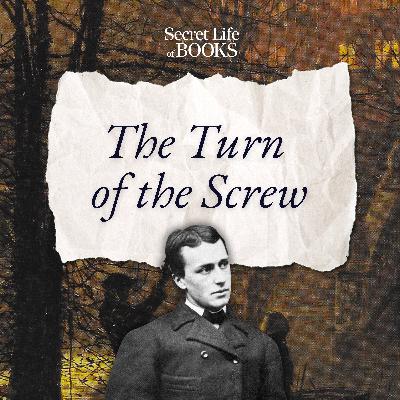
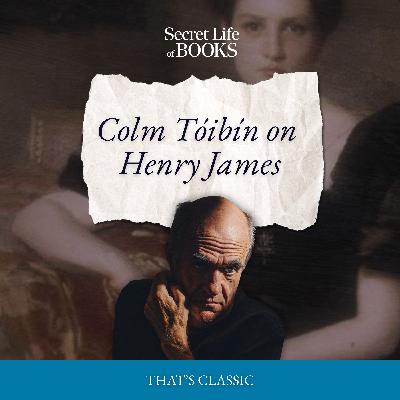
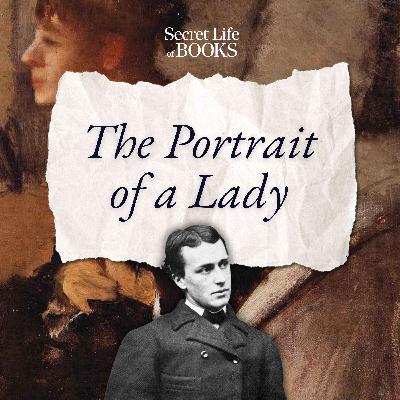
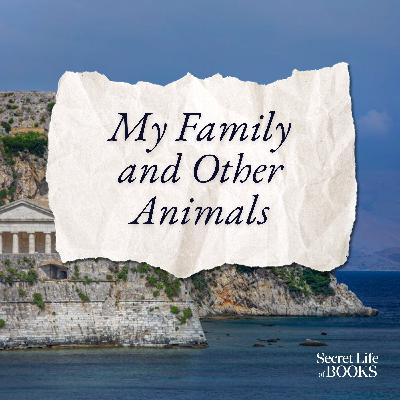
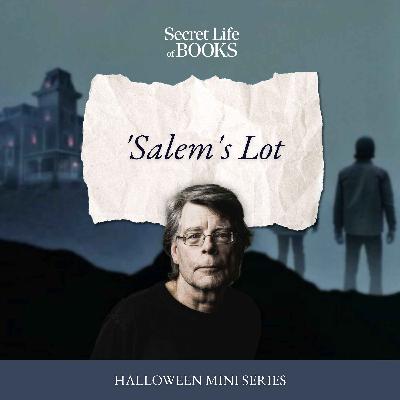
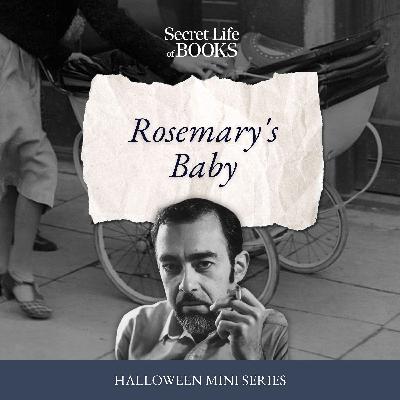
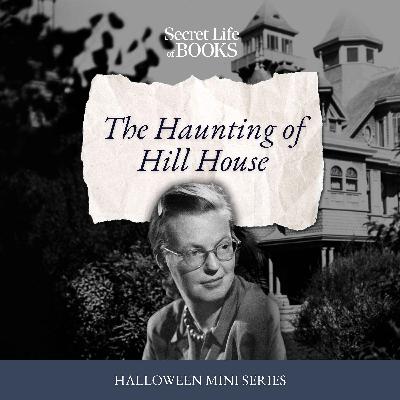
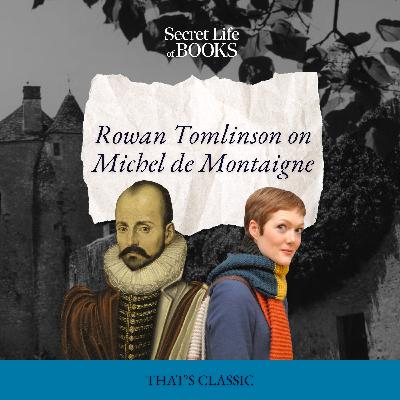
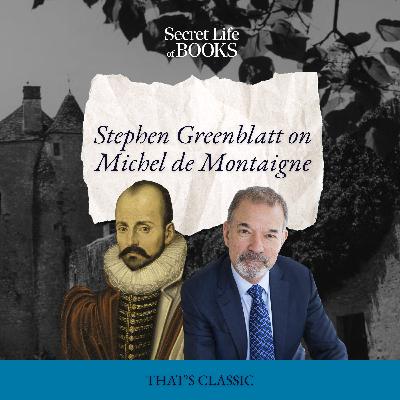

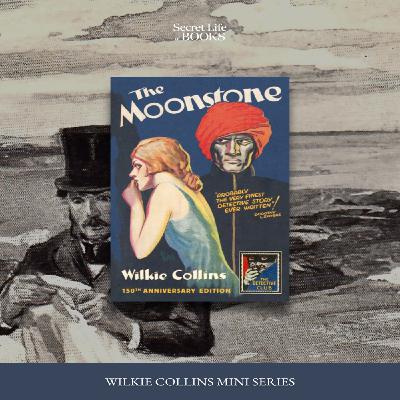
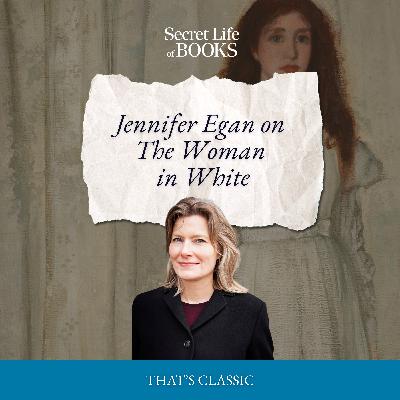
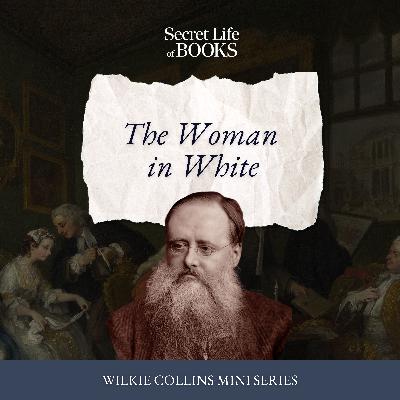
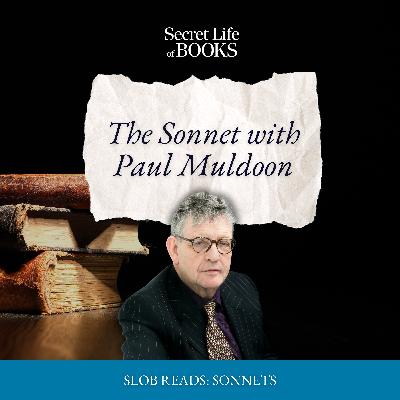
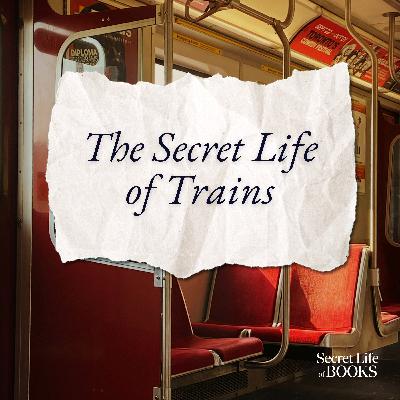
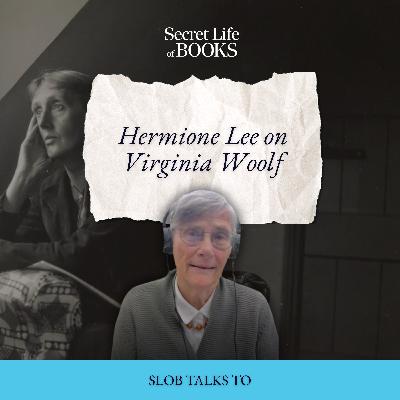
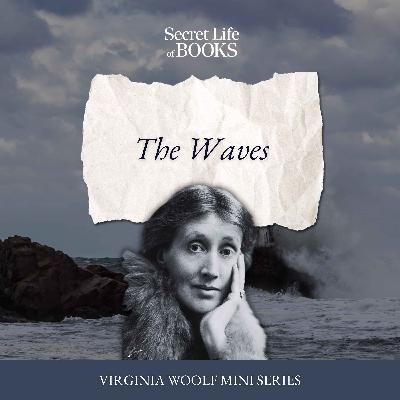
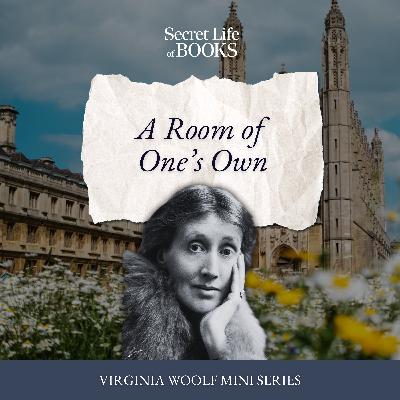




It's too bad you did this episode before you did the episode on LoTR, because Bilbo's birthday party would get top marks in all categories.
One reason the play is so frequently performed is because it's got no major roles and about 15 smallish but juicy roles, making it tailor made for school and amateur theater productions. It's also a good play! I do think it's weird that you keep referring to Titania as having stolen the changeling; she did take him from his people after his mother's death in childbirth, but it's Oberon who wants to steal him to be his "henchman" (with implication of pederasty). I'm team Titania on this one.
I'm a little surprised you didn't mention that the play as it's typically performed was drastically cut, at the theater-manager's request, from four acts to three. I saw a production that included the additional act (with the infamous debt-collector scene); the main thing I remember about it is that Cecily, who in the standard version is charmingly eccentric, appeared quite mad.
How could you leave out Pangur Ban? That passage from Mansfield Park is from the section where everybody in the Bertram family is campaigning to get Fanny to accept Crawford's proposal. Lady Bertram's idea of an inducement to get Fanny to marry a man she doesn't love is to promise her a puppy, illustrating Lady Bertram's shallowness and detachment from reality. She is so languid, I always imagine her as drugged with laudanum or something.
Isn't there a girl in Picnic at Hanging Rock (the one who eventually kills herself) who has a crush on Miranda?